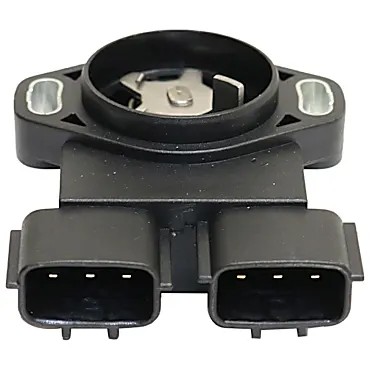Voted Best Answer

Oct 17, 2023 - 12:45 PM
Here's a breakdown of potential causes based on your description:
Mass Air Flow (MAF) Sensor: If the MAF sensor is dirty or failing, it might not properly measure the amount of air entering the engine, leading to surging or jolting when accelerating. Cleaning or replacing it might help.
Fuel Delivery System:
Fuel Pump: A weakening fuel pump might not deliver fuel consistently, causing surges during acceleration.
Fuel Pressure Regulator: A malfunctioning regulator can lead to inconsistent fuel pressure.
Fuel Injectors: Dirty or malfunctioning injectors can lead to uneven fuel delivery.
Vacuum Leaks: A vacuum leak can lead to an unstable air-fuel mixture, causing surging or jolting. Check all vacuum lines, intake manifold gaskets, and other potential sources for leaks.
Transmission Issues: If the transmission is struggling to shift gears or is slipping, it can feel like a jolt or surge during acceleration. The transmission fluid level and condition should be checked.
Electrical Problems: You mentioned dim interior lights, which could indicate an electrical issue. Grounding problems or issues with the alternator (which you plan to replace) can affect various vehicle systems. Checking the main grounds and battery terminals is essential.
Body Control Module (BCM): The BCM controls many of the vehicle's electrical functions. A malfunctioning BCM can cause various random electrical issues. Before concluding it's the BCM, it's a good idea to check other simpler potential causes first.
Engine Control Module (ECM): Rare, but the vehicle's computer can have faults leading to performance issues. Before considering this, you'd usually expect to see specific diagnostic trouble codes related to the ECM.
Given everything you've already changed, here are a few steps you can take:
Diagnostic Scan: If you haven't done so recently, get a full diagnostic scan. This might reveal stored codes that can guide your troubleshooting.
Fuel Pressure Test: This will let you know if the fuel pump and regulator are performing correctly.
Smoke Test: This test can help locate vacuum leaks that might not be immediately visible.
Voltage and Grounding: Given the electrical symptoms, check the battery's voltage, alternator output, and ensure there are no grounding issues.
Professional Help: If you're feeling overwhelmed, consider taking the car to a reputable mechanic. Sometimes a fresh pair of eyes can catch something overlooked.
Evaluate the Car's Worth: Before investing more money, evaluate the overall condition and value of the car versus the cost of potential repairs. It might be more economical in the long run to replace the vehicle.
Mass Air Flow (MAF) Sensor: If the MAF sensor is dirty or failing, it might not properly measure the amount of air entering the engine, leading to surging or jolting when accelerating. Cleaning or replacing it might help.
Fuel Delivery System:
Fuel Pump: A weakening fuel pump might not deliver fuel consistently, causing surges during acceleration.
Fuel Pressure Regulator: A malfunctioning regulator can lead to inconsistent fuel pressure.
Fuel Injectors: Dirty or malfunctioning injectors can lead to uneven fuel delivery.
Vacuum Leaks: A vacuum leak can lead to an unstable air-fuel mixture, causing surging or jolting. Check all vacuum lines, intake manifold gaskets, and other potential sources for leaks.
Transmission Issues: If the transmission is struggling to shift gears or is slipping, it can feel like a jolt or surge during acceleration. The transmission fluid level and condition should be checked.
Electrical Problems: You mentioned dim interior lights, which could indicate an electrical issue. Grounding problems or issues with the alternator (which you plan to replace) can affect various vehicle systems. Checking the main grounds and battery terminals is essential.
Body Control Module (BCM): The BCM controls many of the vehicle's electrical functions. A malfunctioning BCM can cause various random electrical issues. Before concluding it's the BCM, it's a good idea to check other simpler potential causes first.
Engine Control Module (ECM): Rare, but the vehicle's computer can have faults leading to performance issues. Before considering this, you'd usually expect to see specific diagnostic trouble codes related to the ECM.
Given everything you've already changed, here are a few steps you can take:
Diagnostic Scan: If you haven't done so recently, get a full diagnostic scan. This might reveal stored codes that can guide your troubleshooting.
Fuel Pressure Test: This will let you know if the fuel pump and regulator are performing correctly.
Smoke Test: This test can help locate vacuum leaks that might not be immediately visible.
Voltage and Grounding: Given the electrical symptoms, check the battery's voltage, alternator output, and ensure there are no grounding issues.
Professional Help: If you're feeling overwhelmed, consider taking the car to a reputable mechanic. Sometimes a fresh pair of eyes can catch something overlooked.
Evaluate the Car's Worth: Before investing more money, evaluate the overall condition and value of the car versus the cost of potential repairs. It might be more economical in the long run to replace the vehicle.









Add New Comment